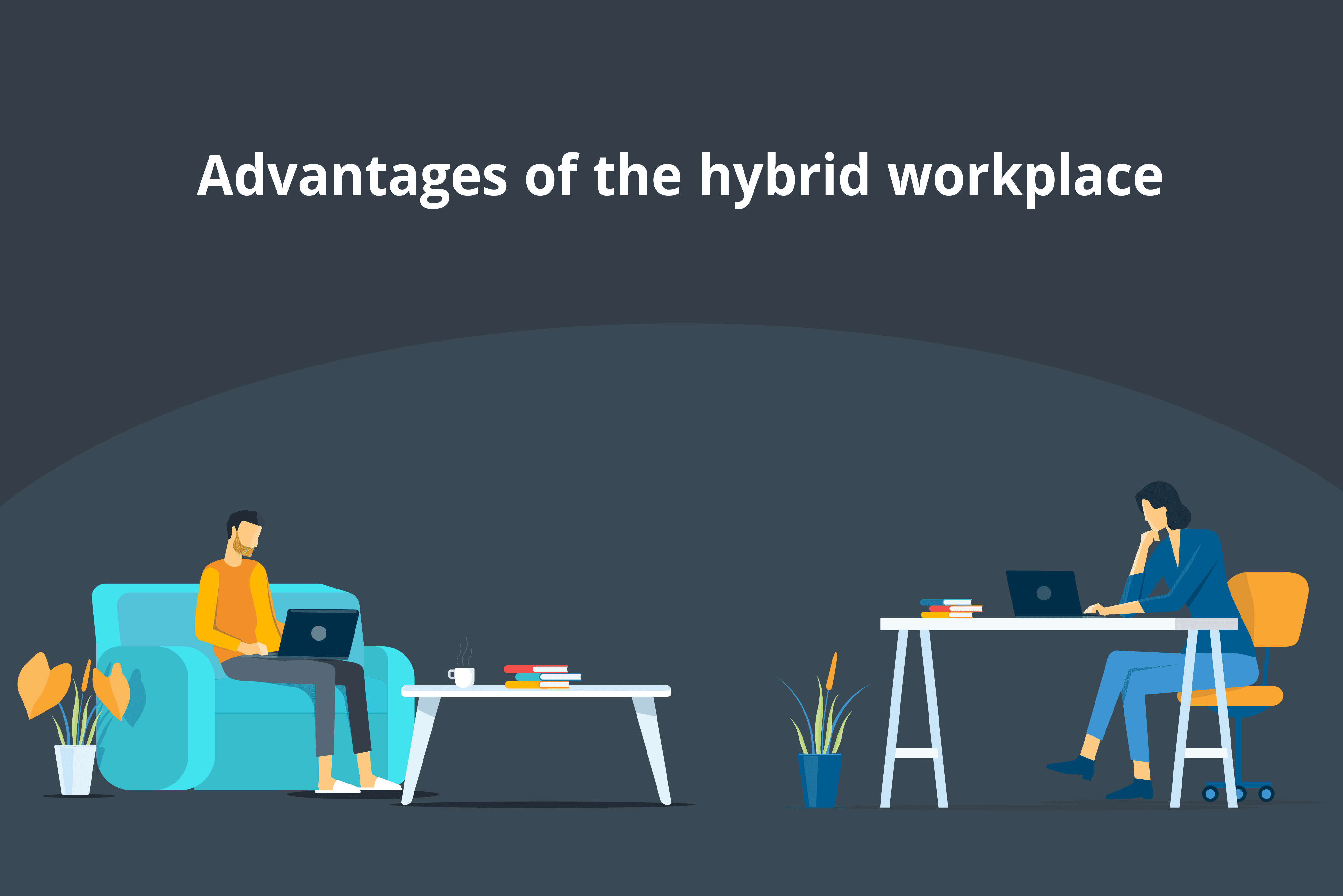In our previous blog post in this series, we looked at a few lessons that the pandemic taught us about unified cloud communications and how they are a critical tool for business continuity, helping to ensure business interactions can continue regardless of employees’ physical locations.
We are now entering the next reality: a hybrid workplace that supports a mix of remote and in-office employees, shared workspaces, and yes—even traveling! Over 36% of businesses will provide flexible working options for their employees moving forward.
IBM, as one example, expects 80% of its employees to work in a hybrid model after the pandemic. Microsoft is also moving forward as a hybrid, modern workplace with part-time and home-based work as the standard for most roles. In addition, Salesforce employees will be able to choose from three working arrangements: flex (in the office 1-3 days per week), fully remote, and office-based (4-5 days per week in the office).
What are some of the benefits of a hybrid workplace?
Better work-life balance
The drivers for the shift away from office-centric operations are many—not the least of which is that the workforce wants it. Global Workplace Analytics said 82% of workers want to continue to work from home at least weekly. Among their reasons:
- Schedule flexibility
- Avoiding long commutes
- Ability to live and work from anywhere
Reduced costs
Employers are jumping on the hybrid work model, too. Some echo the workforce’s claims of improved work-life balance, but the drivers are primarily financial—stemming from reduced need for office space with high rents, mortgages, utilities, and maintenance. In fact, a typical employer can save about $11,000 per year for every person who works remotely half of the time.
Access to a larger talent pool
Businesses that are 100% office-based only have two options when hiring. They can either hire a local candidate or find a candidate that is willing to relocate. Both options severely limit the number of candidates available, not to mention the costs associated if their hired candidate needs to relocate.
On the other hand, a hybrid workplace allows businesses to expand their search to be state, nation, and worldwide. This allows access to a larger talent pool and provides more potential candidates so businesses have a better chance at hiring the right person for the specific role.
Next week, keep an eye out for the final blog post in this series where we will look at the key features to consider when choosing a communications platform for work-from-anywhere environments.
To learn how Broadvoice’s b-hive Cloud Communications solution enables businesses to work from anywhere, visit https://www.broadvoice.com/cloud-pbx/ or contact [email protected].






